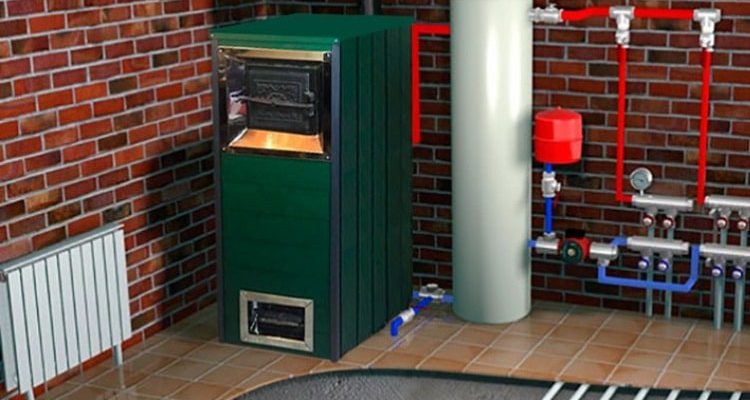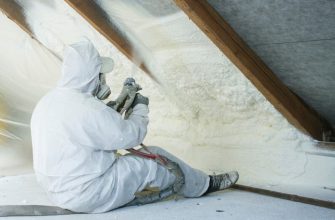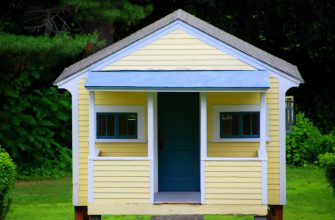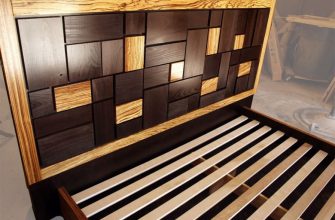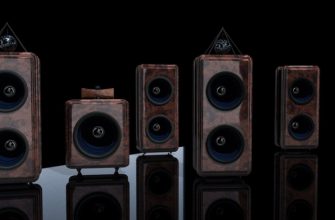Are you considering replacing your mobile home’s hot water heater? It’s essential to have an efficient and reliable hot water supply for your daily needs. In this comprehensive guide, we will cover everything you need to know about replacing your mobile home’s hot water heater. From deciding when to replace it to selecting the right type, sizing, and installation process, we have got you covered. You will also learn about energy-efficient options, maintenance tips and how to troubleshoot common issues with your water heater.
- When is it Time to Replace Your Mobile Home’s Hot Water Heater?
- Types of Mobile Home Hot Water Heaters
- Electric Water Heaters
- Gas Water Heaters
- Sizing Your New Mobile Home Hot Water Heater
- Example Sizing Guide
- Installing a Mobile Home Hot Water Heater
- Energy-Efficient Options for Mobile Home Hot Water Heaters
- Tankless Water Heaters
- Heat Pump Water Heaters
- Maintenance Tips for Mobile Home Hot Water Heaters
- Inspection and Cleaning
- Flushing the Tank
- Checking the Pressure Relief Valve
- Adjusting the Temperature
- Hiring a Professional
- Regular Inspections
- Troubleshooting Common Issues with Mobile Home Hot Water Heaters
- Cost Considerations for Mobile Home Hot Water Heater Replacement
- The Cost of the Water Heater Itself
- Installation Expenses
- Additional Costs to Consider
- Conclusion
When is it Time to Replace Your Mobile Home’s Hot Water Heater?
As with any appliance, your mobile home’s hot water heater will eventually need replacement. However, it can be challenging to know when its time to start shopping for a new unit. Below are some signs to look out for that indicate a failing mobile home hot water heater:
- No or insufficient hot water.
- Inconsistent water temperature.
- Unusual noises.
- Leaking tank.
- Rusty or discolored water.
- Age over 10 years old.
If you notice any of these signs, it’s time to consider replacing your mobile home hot water heater. Proactively replacing your water heater can save you the inconvenience and costs of a sudden breakdown. Moreover, a new unit can provide reliable and efficient hot water for your household needs.
Types of Mobile Home Hot Water Heaters
Choosing the right type of hot water heater for your mobile home is important to ensure reliable and efficient performance. The two main types of water heaters suitable for mobile homes are electric and gas water heaters.
Electric Water Heaters
Electric water heaters are easy to install and operate, making them a popular choice for mobile homes. They can be powered by electricity or solar panels, making them eco-friendly options. Electric water heaters have a lower upfront cost, require less maintenance, and can fit in small spaces. However, they may have higher energy bills and take longer to heat water than gas water heaters.
Gas Water Heaters
Gas water heaters use propane or natural gas as fuel, making them an efficient and cost-effective choice for providing hot water in mobile homes. They heat water quickly and are often more affordable to operate than electric water heaters. However, gas water heaters require proper ventilation and safety precautions, and they have a higher upfront cost than electric water heaters.
| Electric Water Heaters | Gas Water Heaters | |
|---|---|---|
| Cost | Lower upfront cost | Higher upfront cost |
| Operating Cost | Higher energy bills | Lower energy bills |
| Efficiency | Less efficient | More efficient |
| Installation | Easy installation | Requires proper ventilation and safety measures |
Both electric and gas water heaters come in various sizes and models to fit your needs and preferences. Consider factors such as your hot water demand, budget, and energy efficiency when choosing the right type of water heater for your mobile home.
Sizing Your New Mobile Home Hot Water Heater
When replacing your mobile home’s hot water heater, it’s crucial to size it properly to ensure an efficient and adequate supply of hot water. Correctly sizing your water heater means taking into account your hot water demand, which refers to the amount of hot water your household typically uses.
To calculate your hot water demand, start by examining your household’s peak hour usage. This is the time period when hot water demand is at its highest, such as in the morning when everyone is taking showers. You can use a worksheet available online to calculate your peak hour usage based on the number of occupants in your home and their typical water-using activities.
Once you have determined your peak hour usage, you can consult the manufacturer’s sizing guide to select the appropriate size water heater for your mobile home. Keep in mind that a larger water heater doesn’t always mean better, as an oversized water heater can lead to unnecessary energy consumption and higher costs.
Example Sizing Guide
| Household Size | Number of Bathrooms | Tank Size (Gallons) | Recovery Rate (Gallons Per Hour) |
|---|---|---|---|
| 1-2 people | 1 | 30-40 | first-hour rating of 50-60 |
| 2-4 people | 1-2 | 40-50 | first-hour rating of 80 |
| 3-5 people | 1-2 | 50-80 | first-hour rating of 80-90 |
| 5 or more people | 2 or more | 80 or more | first-hour rating of 90 or more |
Note that this is just an example sizing guide, and you should always consult the manufacturer’s guide specific to the water heater you choose. By properly sizing your new mobile home hot water heater, you can ensure a comfortable and efficient supply of hot water for your household’s needs.
Installing a Mobile Home Hot Water Heater
Installing a hot water heater in a mobile home requires careful planning and execution. Follow these expert tips for a successful installation:
- Choose the Right Location: The installation site should be easily accessible and have sufficient space to accommodate the new water heater. The area should also be well-ventilated and close to the water supply and electrical or gas line.
- Prepare the Site: Clear the area and ensure that there are no objects or debris that can cause accidents during the installation. Use a level to ensure the surface is flat and stable.
- Disconnect the Old Water Heater: Turn off the power supply or gas line and disconnect the old unit from the plumbing. Drain the tank to prevent any remaining water from spilling out.
- Install the New Water Heater: Position the new water heater in the designated location, ensuring that there is ample clearance around it for maintenance and repair. Connect the plumbing and gas or electrical supply according to the manufacturer’s instructions.
- Test the Water Heater: Turn on the water supply and power or gas line and check for any leaks or malfunctions. Adjust the temperature according to your preferences and allow the water heater to heat up.
Professional installation is highly recommended for mobile home hot water heaters, as it requires specific knowledge and expertise. Hiring a licensed contractor ensures that the installation process is safe, compliant, and up to code.
Energy-Efficient Options for Mobile Home Hot Water Heaters
Upgrading your mobile home’s hot water system can help you save both energy and money. Two energy-efficient options to consider are tankless water heaters and heat pump water heaters.
Tankless Water Heaters
Tankless water heaters, also known as demand-type water heaters, heat water directly when you need it, without using a storage tank. This means you’ll have a constant supply of hot water on-demand while saving energy and space.
Compared to traditional storage tank water heaters, tankless models are more energy-efficient since they only heat water when needed, resulting in lower energy bills. Additionally, they have a longer lifespan and take up less space, making them ideal for smaller homes like mobile homes.
Heat Pump Water Heaters
Another energy-efficient option for mobile homes is heat pump water heaters. These use electricity to move heat from the air or ground to heat water, rather than generating heat directly. This makes them three times more efficient than standard electric water heaters.
While heat pump water heaters have a higher upfront cost than traditional models, they will help reduce your energy bills over time.
Overall, upgrading to an energy-efficient water heater is a smart investment for your mobile home. Consider your hot water needs, budget, and available space to choose between a tankless water heater and heat pump water heater, and enjoy long-term energy savings and increased comfort.
Maintenance Tips for Mobile Home Hot Water Heaters
Proper maintenance of your mobile home’s hot water heater is crucial to ensure its longevity, efficiency, and safety. Follow these essential maintenance tips and regular care routines for optimal functioning:
Inspection and Cleaning
Regularly inspect your water heater for any signs of leaks, corrosion, or damage. Clean the exterior of the heater using a mild detergent and water. Avoid using abrasive cleaners that may scratch the surface and damage the paint.
Flushing the Tank
Flushing the tank of your water heater removes sediment buildup that can affect its efficiency and lifespan. To flush the tank:
- Turn off the power supply or gas valve to your water heater.
- Attach a hose to the drain valve at the bottom of the tank.
- Place the other end of the hose in a drain or outside.
- Open the drain valve and allow the tank to drain completely.
- Close the drain valve and fill the tank again.
Checking the Pressure Relief Valve
The pressure relief valve on your water heater opens if the pressure or temperature inside the tank exceeds safe levels. To check the valve:
- Turn off the power supply or gas valve to your water heater.
- Locate the pressure relief valve. It is usually located on top of the tank.
- Place a bucket or container under the valve.
- Lift the lever or handle on the valve halfway and allow some water to flush through the valve.
- Release the handle and check that the valve closes automatically.
Adjusting the Temperature
The recommended temperature for most water heaters is 120 degrees Fahrenheit. Higher temperatures increase the risk of scalding and mineral buildup. To adjust the temperature:
- Turn off the power supply or gas valve to your water heater.
- Locate the thermostat on your water heater.
- Adjust the temperature using a screwdriver or knob. Be sure to follow the manufacturer’s instructions if available.
Hiring a Professional
Some maintenance tasks, such as replacing the anode rod or inspecting the gas line, require professional expertise. Consider hiring a licensed plumber or HVAC technician for complex maintenance or repairs.
Regular Inspections
Inspection and maintenance of your mobile home’s hot water heater should be performed at least once a year. Regular care not only extends the lifespan of your water heater but also saves energy and money on utility bills.
Troubleshooting Common Issues with Mobile Home Hot Water Heaters
Despite proper maintenance, hot water heaters in mobile homes may develop common issues over time. Here are some troubleshooting tips to keep your water heater functioning optimally:
- Inadequate Hot Water: If your water heater doesn’t produce enough hot water, check the thermostat setting. It may need adjustment. Also, inspect the heating element or gas burner to ensure it’s functioning correctly. If the problem persists, consider upgrading to a larger water heater.
- No Hot Water: The most common reason for no hot water is a faulty pilot light or igniter. Check the device and relight it if necessary. If the pilot light won’t stay lit, you may need to replace the thermocouple.
- Strange Noises: Rumbling or popping noises from the water heater tank are indicative of sediment buildup. Flush the tank regularly to prevent this issue. If there is a whistling sound, check the relief valve, and replace it if it’s faulty.
- Leaking Water: A water heater leak can be caused by a faulty temperature and pressure relief valve, a leaking pipe, or a corroded tank. Turn off the power and water supply to the heater and call a professional plumber immediately to prevent further damage.
Properly troubleshooting common water heater issues can help extend the lifespan of your unit and prevent costly repairs or replacements. However, if the problem persists or seems to be beyond your abilities, it’s best to call a professional for assistance.
Cost Considerations for Mobile Home Hot Water Heater Replacement
Replacing a hot water heater in a mobile home is a significant expense, and it’s essential to determine your budget before starting the upgrade process. Several cost considerations should be taken into account when determining the total cost of the replacement.
The Cost of the Water Heater Itself
The cost of the hot water heater is one of the primary expenses. The price of a new mobile home hot water heater can range widely, depending on the brand, size, and type. Electric water heaters are generally less expensive than gas water heaters, but they may be less energy-efficient in the long run, which could lead to increased utility bills.
Installation Expenses
Installation expenses are another crucial cost consideration. If you have the expertise, you could install the hot water heater yourself. However, if you don’t, you will need to hire a professional to install it for you. Professional installation is recommended since it can ensure the safety and efficiency of the new water heater. The cost of installation can also vary based on geography, availability, and installer experience.
Additional Costs to Consider
When budgeting for a new mobile home hot water heater, you should also consider any additional expenses that may arise. For example, if the new water heater is larger than your old one, you may need to add additional ventilation or upgrade your electrical system to ensure that it functions correctly. Additionally, any plumbing repairs or modifications required to accommodate the new water heater should be factored into your total cost.
| Expense | Average Cost |
|---|---|
| Electric Hot Water Heater | $350-$600 |
| Gas Hot Water Heater | $400-$900 |
| Professional Installation | $200-$400 |
| Additional Plumbing Repairs or Modifications | $200-$600 |
| Upgraded Electrical System | $300-$500+ |
“While the cost of replacing a hot water heater may seem daunting, it is a worthwhile investment for the comfort and efficiency of your mobile home.”
When planning to replace your mobile home’s hot water heater, take the time to research different brands and models, and compare prices from different retailers. By weighing cost considerations upfront, you can budget accordingly and make a smart investment that will benefit your home in the long run.
Conclusion
Replacing your mobile home’s hot water heater may seem daunting, but with the right knowledge and resources, it can be a seamless and rewarding upgrade. By recognizing the signs of a failing water heater, choosing the right type, properly sizing it, and performing regular maintenance, you can enjoy a reliable supply of hot water for years to come.
Consider the benefits of energy-efficient options like tankless or heat pump water heaters, which not only save money on energy bills but also reduce your environmental impact. While the cost of replacing a hot water heater may vary depending on the type and installation expenses, it’s essential to budget accordingly to avoid unexpected expenses.
By following the expert tips and guidelines outlined in this comprehensive guide, you can make an informed decision about replacing your mobile home’s hot water heater. Upgrade your comfort and energy efficiency today with a new and reliable hot water system.

